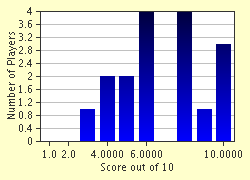Quiz Answer Key and Fun Facts
1. Prior to the arrival of Europeans, Quebec was called Stadacona and was occupied by which native tribe?
2. Quebec was officially founded in 1608 by which French explorer who is often called the 'Father of New France'?
3. The 1690 Battle of Quebec was fought between the colonists of New France and which other place?
4. The War of the Conquest is a common name the people of Quebec give to which war?
5. What is the name of the French commander who died at the Battle of the Plains of Abraham in 1759?
6. Which of the following was NOT a provision of the Quebec Act of 1774?
7. The Quebec Conference convened in 1864 to discuss what?
8. In 1893, one of Quebec's most famous sites, Le Chateau Frontenac, opened. What was the original and use for this building - a purpose for which it has continued to be used ever since?
9. By what name is the meeting between Canadian Prime Minister Brian Mulroney and U.S. President Ronald Reagan known as that took place in Quebec on March 18, 1985?
10. For nearly a decade beginning in 1994, what plagued the city and province of Quebec?
Source: Author
Joepetz
This quiz was reviewed by FunTrivia editor
bloomsby before going online.
Any errors found in FunTrivia content are routinely corrected through our feedback system.
